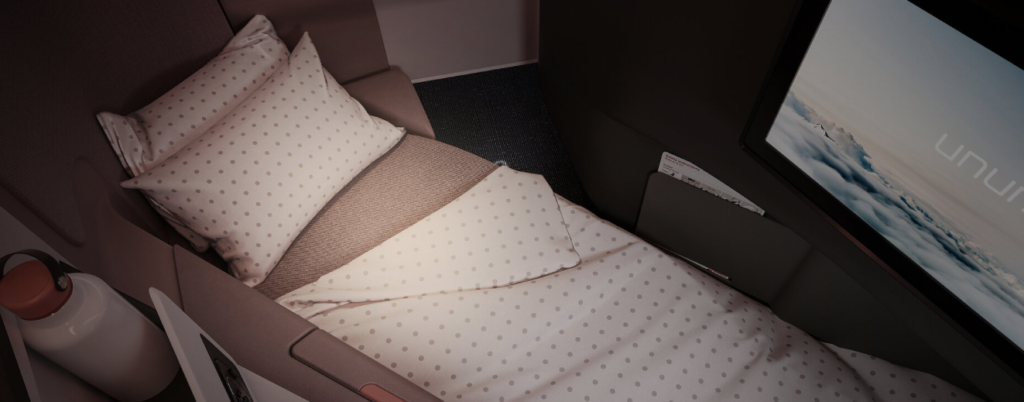Unum: A New Business-Class Seat Maker with Ex-Acro CEO Chris Brady at the Helm
Share

Chris Brady, who led Acro Aircraft Seating from 2004 to 2019, has now launched Unum Aircraft Seating, a new business-class seating manufacturer that’s “by people, for people.”
Brady believes Unum can solve ongoing issues in the aircraft seating market that affect both large and small airlines. For bigger carriers, he sees the consolidation of seating companies as a problem. “Consolidation reduced choice, and it reduced resilience, because now there is a single point of failure,” he explained. This means that the delivery of new aircraft can be delayed.
For smaller airlines, the issue is having access to seats in the first place. “The certification phase takes as much effort to certify a single seat as it does 10,000, so if you’re trying to optimize your resources and returns to shareholders, you opt for large projects,” said Brady. “I’ve heard tales from people who’ve been told, “we don’t deal with airlines like you.” We’ve ended up with a monopolistic supply system, but resources are scarce.”
Brady’s goal with Unum is therefore to come to market with a company rather than a product, and one that is genuinely focused on helping airlines and helping passengers.
In terms of the timing of Unum’s launch, Brady said COVID-19 provided a great environment for the company during its development stage. During 2020 and early 2021, the company worked closely with Acumen, which was able to dedicate plenty of time and attention to the project since their other business had declined by two thirds.
Looking forward, he foresees a “four or five year boom in aircraft interiors” similar to those that follow the three previous crises he’s witnessed during his career: The Gulf War, 9/11 and the banking crisis. “Airlines in turbulence often look at changing their LOPAs, which leads to work in aircraft interiors.”

But what about the product itself? Unum initially decided to focus on something designed especially for the Airbus A330, which he believes is underserved. “Seats tend to be designed for Boeing 777s and Airbus A350s and then squashed into the A330.” The company decided not to focus on the Airbus A321. “While the A321LR is fashionable from a business-class standpoint, that’s a line-fit market, and we’ll be a retrofit business initially.”
Brady acknowledged that the pandemic has “decimated” the retrofit market for A330s, but argued that “the discipline of working with that narrow fuselage has created a product that’s great across all wide-bodies … In 2020 we put it on an A320 and discovered we’ve accidentally created a seat that offers a fabulously consistent passenger experience across every airframe type.”
The Unum One seat the company is showcasing on its newly launched website is being marketed as a reimagining of traditional outward-facing herringbone designs. Fully-lie flat with direct-aisle access across narrow-body and wide-body aircraft, its other features include privacy doors, a single-piece table, and a zero gravity seat mechanism.
Unum’s tagline is “Reliably comfortable. Responsibly made.” And Brady is clear on what makes a seat most sustainable: weight, or lack of. “The amount of carbon a seat uses in its life from the fuel it burns is something like seven or eight times the amount of carbon during its creation.” However, he counters that the benefits of lightweight seats are undermined if they won’t last for ten years, so longevity is also an important factor.
The company is looking forward to showcasing a prototype of its Unum One seat at its facility in the UK in the coming months.


